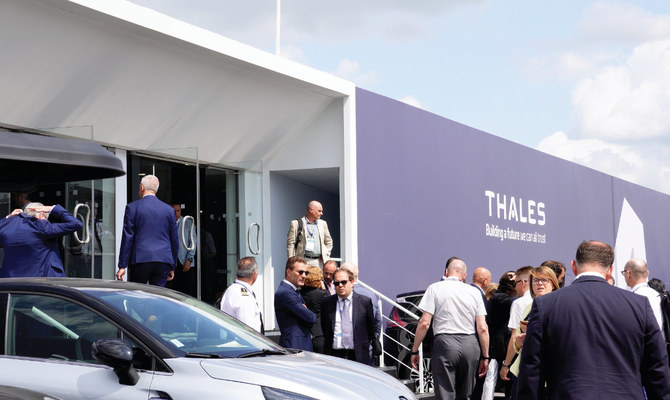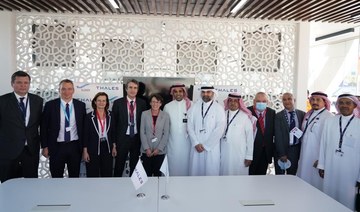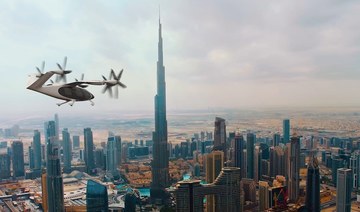PARIS: Multinational defense and civil company Thales is committed to strengthening its presence in Saudi Arabia and expanding its operations to align with the country’s Vision 2030 initiative, one of the firm’s leading figures has told Arab News.
Speaking on the sidelines of the Paris Air Show, Pascale Sourisse, president of Thales International, said the organization not only wants to bolster the Kingdom’s defense sector, it is also branching out into other areas such as security, civil aviation and higher education.
Thales specializes in areas such as defence and security, aeronautics and space, digital identity and security. It currently operates in 68 countries with 77,000 employees.
The firm has been a trusted partner in Saudi Arabia for over 50 years, steadily increasing its footprint in the region, said Sourisse, adding: “The first sector in which we operate in Saudi Arabia is defense.
“We support all the armed forces in Saudi Arabia: the air force, the defense force, land forces, naval forces, so that’s a very strong presence.”
Aligning with the Vision 2030 strategy to diversify the Kingdom’s economy away from oil, in 2020 Thales established a joint venture with Saudi Arabian Military Industries called SAMI Thales Electronic System, with the aim of building capabilities and localizing the complete value chain in Saudi Arabia.
Sourisse highlighted the need for a robust Saudi supply chain, stating: “It is important to have enough players that would come from a Saudi supply chain, not only a supply chain coming from other countries in the world.”
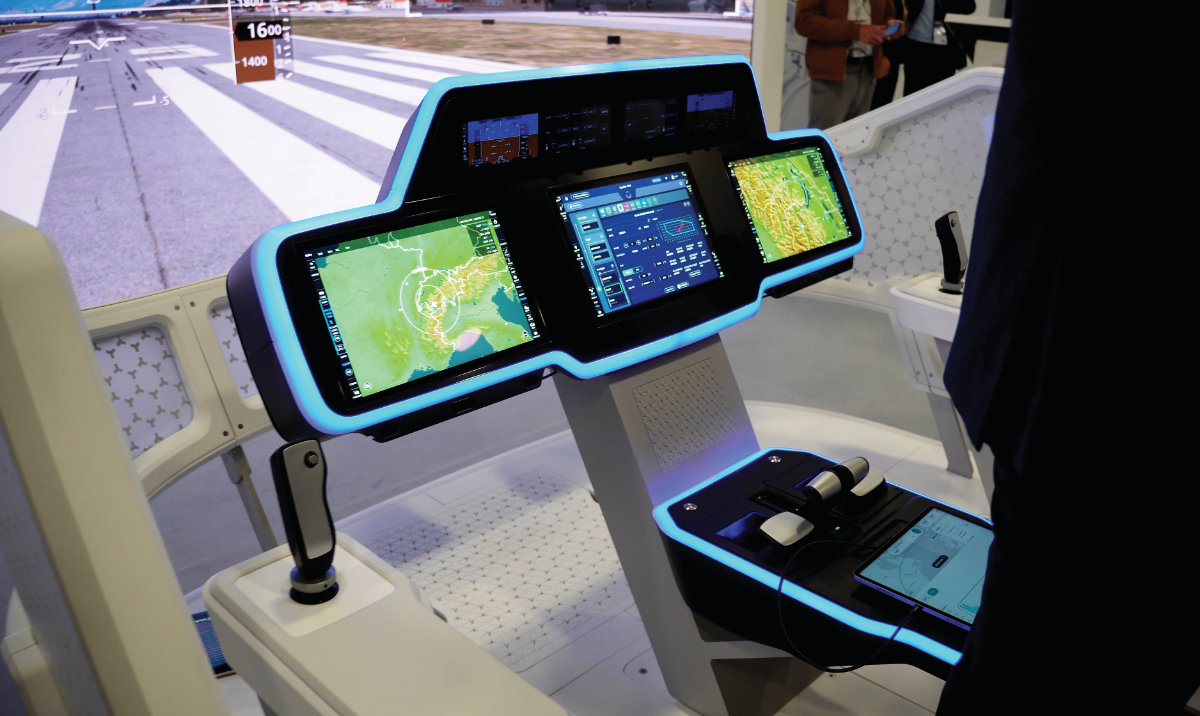

Highlighting the objective to address the needs of customers, particularly in the field of air defense and radio communications, Thales plans to expand its team of engineers in Saudi Arabia to more than 300 or 400 people within the next two years.
This ambitious approach is in line with the company’s determination to execute awarded projects and provide comprehensive support to the installed base directly from Saudi Arabia.
While defense has been Thales’ dominant domain in Saudi Arabia for decades, the company is expanding its focus to other sectors as well.
It has provided security systems for the holy sites in Makkah and Medinah and was recently selected to deliver security solutions for the archaeological site of AlUla in northeastern Saudi Arabia. Thales is also exploring opportunities to provide security solutions for projects like NEOM and the Red Sea.
Sourisse highlighted the significance of exporting from Saudi Arabia, stating: “The competencies and capabilities we are building in Saudi Arabia are not only designed to serve the Saudi market.”
HIGHLIGHTS
• The firm has been a trusted partner in Saudi Arabia for over 50 years, steadily increasing its footprint in the region.
• In 2020, Thales established a joint venture with Saudi Arabian Military Industries called SAMI Thales Electronic System, with the aim of building capabilities and localizing the complete value chain in Saudi Arabia.
• While defense has been Thales’ dominant domain in Saudi Arabia for decades, the company is expanding its focus to other sectors as well.
• It has provided security systems for the holy sites in Makkah and Madinah and was recently selected to deliver security solutions for the archaeological site of AlUla.
• Thales is also exploring opportunities to provide security solutions for projects like NEOM and the Red Sea.
By including these capabilities in its global network, Thales aims to cater to customers beyond the Middle East, further strengthening its position as a global leader.
During the interview, Sourisse shed light on Thales’ involvement in civil aviation and air traffic management.
The company is working closely with the Kingdom’s General Authority of Civil Aviation to develop activities in these domains. One of the company’s key products in this field is “Flight to Gate” — which uses biometric sensors to directly identify people.
Sourisse said: “When you use the solution, which is an end-to-end solution, you can check in at home, you give the necessary information, and then through biometric solutions so you can be identified at checkpoints.
“This enables the operator to reduce the time spent at checkpoints by at least 30 percent. So, it is very efficient to handle passenger flows and make sure the passenger experience is really increased because they don’t have to queue too long at all these checkpoints.” Technology and innovation remain central to Thales’ approach. The company leverages AI and digital solutions to optimize its systems, enhance user experience, and ensure the utmost security.
Furthermore, Thales places a strong emphasis on sustainability and aims to continue increasing the green aspects of its solutions.
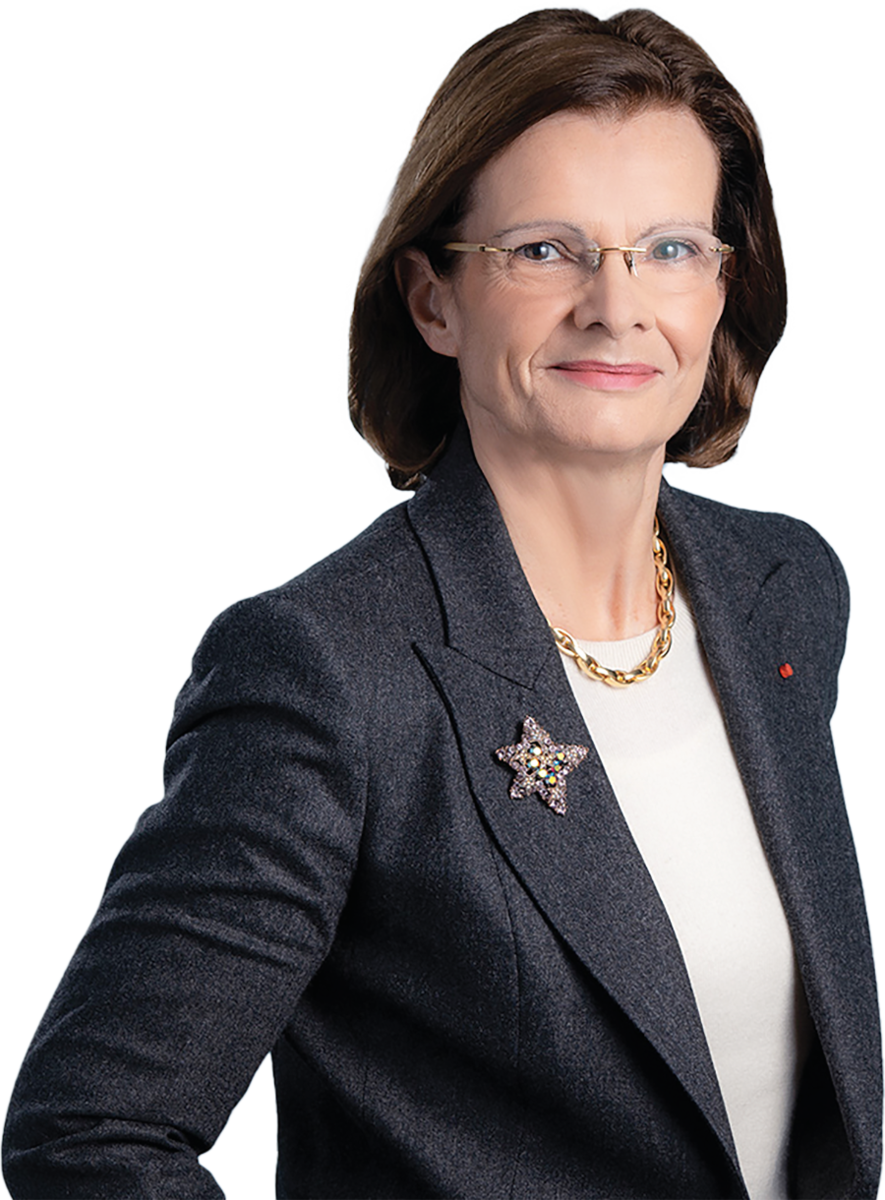
Pascale Sourisse, president of Thales International
Sourisse emphasized Thales’ commitment to research and development, with an annual investment of over €4 billion.
To ensure a skilled workforce, the company collaborates with universities and conducts in-house training programs to equip engineers with the specific knowledge required for their talent, products, and solutions.
Diversity and gender equality are also at the forefront of Thales’ agenda. Sourisse expressed her satisfaction in identifying highly-motivated and competent female engineers in Saudi Arabia and set out the company’s plan to hire more female talent.
Thales is not the only French-based firm to see opportunities for growth in the Kingdom.
The Paris Air Show saw the signing of an agreement between SAMI and French aerospace company Safran which will help Aircraft Accessories & Components Co., a subsidiary of the Saudi defense firm, launch repair services for landing gears of major helicopters such as Super Puma and Cougar.
Much like Sourisse, the CEO OF SAMI, Walid Abukhaled was keen to talk up the importance of the deals in boosting the Kingdom’s production capacity.
Speaking to Arab News during the air show, he said: “During the COVID-19 pandemic, all of the OEMs (original equipment manufacturers) experienced huge issues with supply chains, not only in the defense but also in the automotive industry, the food industry, every industry. I believe Saudi Arabia now will be a huge asset to all of those OEMs.”
He added: “We have already worked with and discussed it with all of our partners and other OEMs, and there are real opportunities. We will announce them during the World Defense show that’s taking place in February 2024 … about how Saudi companies are becoming part of the global supply chains.”
The executive reiterated that SAMI aims to become one of the top 25 defense companies globally by 2030.
Saudi Arabia’s Vision 2030 initiative involves localizing more than 50 percent of military equipment spending, transferring knowledge and technology, and building national expertise in the fields of manufacturing, maintenance, and research and development.


